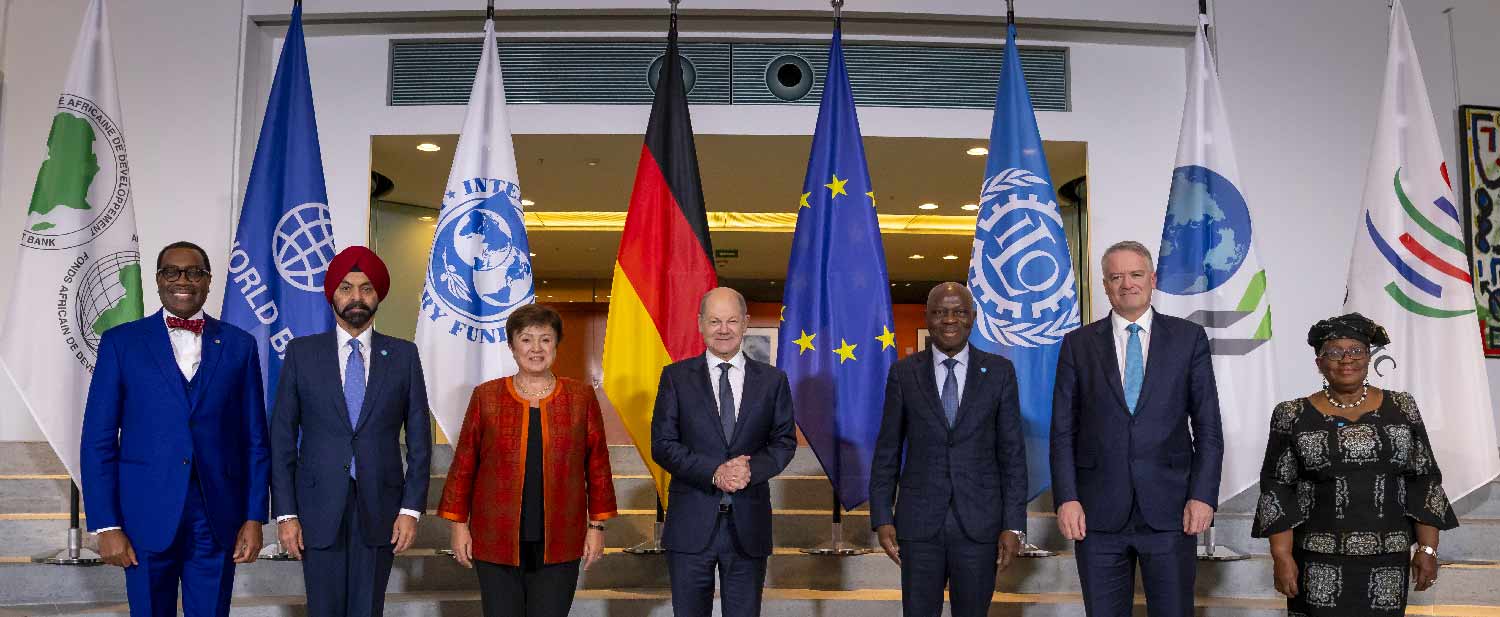|
Getting your Trinity Audio player ready...
|
Writes Nkeletsang Morapedi
Senegalese President Macky Sall’s powerful statement a year ago underscored the urgent need for reshaping the global financial architecture to better align with Africa’s developmental goals. At the 2nd Summit on Infrastructure Financing in Africa in Diamniadio, Dakar, President Sall, then Chairman of the African Union, voiced a collective plea resonating across the continent for fairer access to substantial and sustainable resources.
Today, President Sall’s words reverberate more profoundly than ever. The current global financial setup puts Africa at a significant disadvantage. Many African nations grapple with debt burdens and face challenges in securing concessional financing.
Dr. Akinwumi A. Adesina, President of the African Development Bank (AfDB) Group, has been a vocal advocate for reform, highlighting the escalating debt crisis and the obstacles to accessing concessional financing. At the Doha Forum in December 2023, Adesina raised concerns over Africa’s mounting external debt, which reached $1.1 trillion in 2022 and was projected to rise to $1.3 trillion by the end of 2023. He emphasized the imperative of a multilateral approach to comprehensively address the structural issues underlying debt.
The struggle to access emergency financing exacerbates Africa’s vulnerability to extraordinary situations like natural disasters. Additionally, the continent contends with exaggerated risk perceptions and trade distortions, hindering its economic growth. The United Nations estimates that Africa requires $1.3 trillion annually to meet its Sustainable Development Goals by 2030.
The African Development Bank Group has dedicated its 2024 Annual Meetings to advocating for a reconfigured global financial architecture as a critical step towards achieving structural transformation. Shareholders and regional leaders will convene to discuss the Bank Group’s contribution to Africa’s socio-economic advancement over its 60 years of existence.
Scheduled for May 27-31 in Nairobi, Kenya, the Annual Meetings serve as a pivotal platform for dialogue and action under the theme “Africa’s Transformation, the African Development Bank Group and Reform of the Global Financial Architecture.”
Adesina emphasizes, “The global financial architecture needs to be more responsive, inclusive, and accountable to accelerate worldwide development, particularly in Africa.” He underscores the current system’s hindrances to Africa’s development.
The challenges are multifaceted. Insufficient resources impede Africa’s growth and development agenda, exacerbated by inadequate climate finance amidst escalating environmental threats. Africa, contributing only 3 percent of global carbon emissions, disproportionately suffers from climate change, facing annual losses estimated at $7-$15 billion, expected to soar to $40-$50 billion by 2040. The Bank estimates Africa’s climate finance gap at $213 billion annually up to 2030. Furthermore, orderly debt restructuring remains elusive, worsening economic burdens.
The inequitable distribution of global financial resources favors rich countries, exacerbating Africa’s plight. Africa received a meager $33 billion, or 4.5 percent, of the $650 billion in Special Drawing Rights issued by the International Monetary Fund, and only $89 billion, or 0.5 percent, of the $17 trillion global pandemic response.
Africa faces mounting poverty, job losses, and climate vulnerabilities, exacerbated by the current system. The Bank estimated in 2021 that 29 million Africans had fallen into extreme poverty due to the COVID-19 pandemic, with around 22 million jobs lost. Nine of the World’s 10 most climate-vulnerable countries are in Africa, yet the continent receives less climate funding than any other region.
The Nairobi Meetings mark a pivotal moment for African countries to assert their priorities and demand equitable treatment within the global financial architecture.
As Adesina wrote in a 2023 opinion piece for Le Monde, “The international financial architecture must address global food insecurity, climate change, mounting debt, and the disruptive effects of COVID-19.” African countries must leave the Nairobi gathering equipped to play an active role in global discussions on system reform, particularly in conversations concerning international financial institutions.
Beyond addressing immediate challenges, the discussions must pave the way for long-term systemic reforms, including international taxation and liquidity reserves, essential for Africa’s future prosperity.
The Nairobi Meetings should mark the beginning of Africa’s demand for greater justice in global financial affairs. As United Nations Deputy Secretary-General Amina J. Mohammed aptly stated, “The world is not facing a crisis of resources, but a crisis of sharing.”






